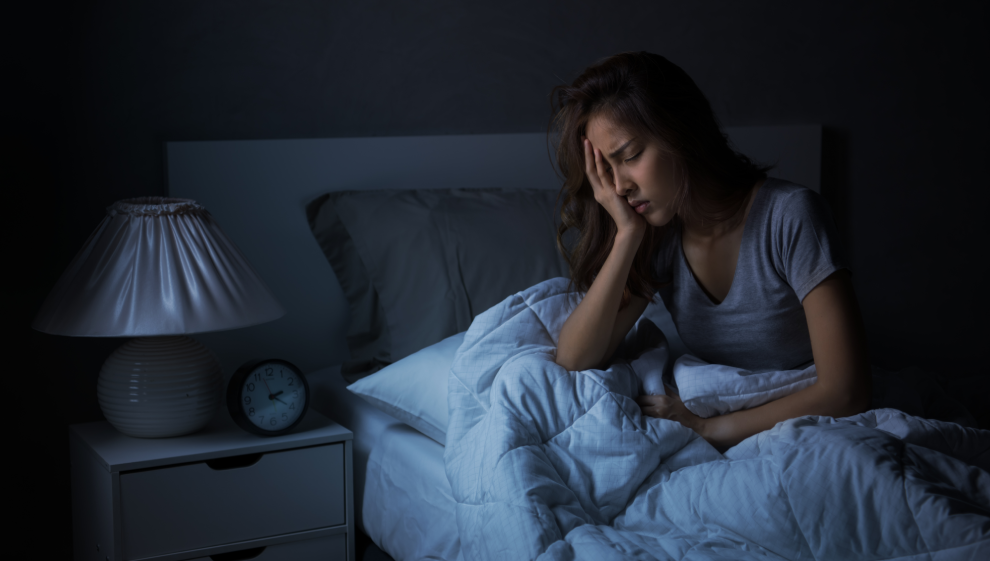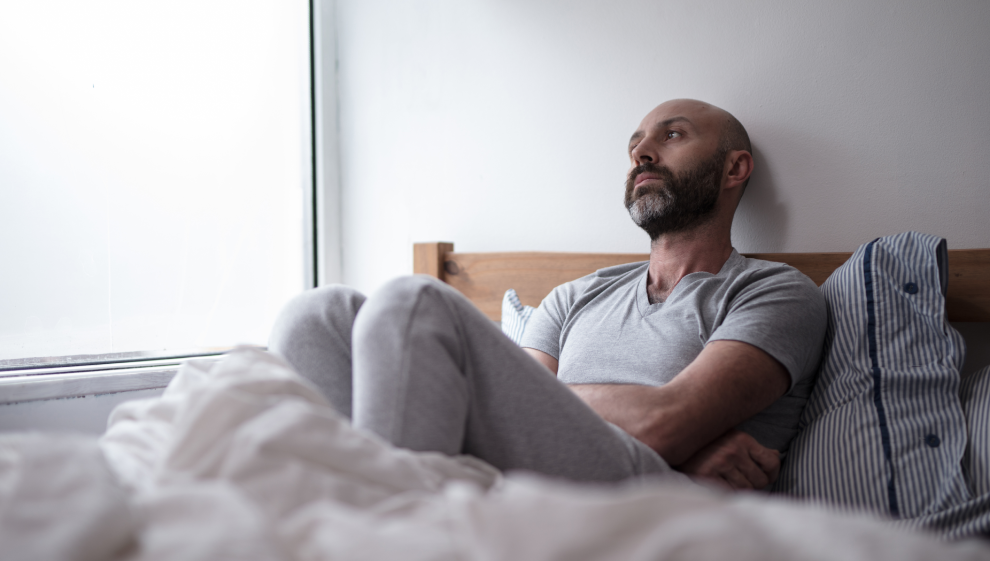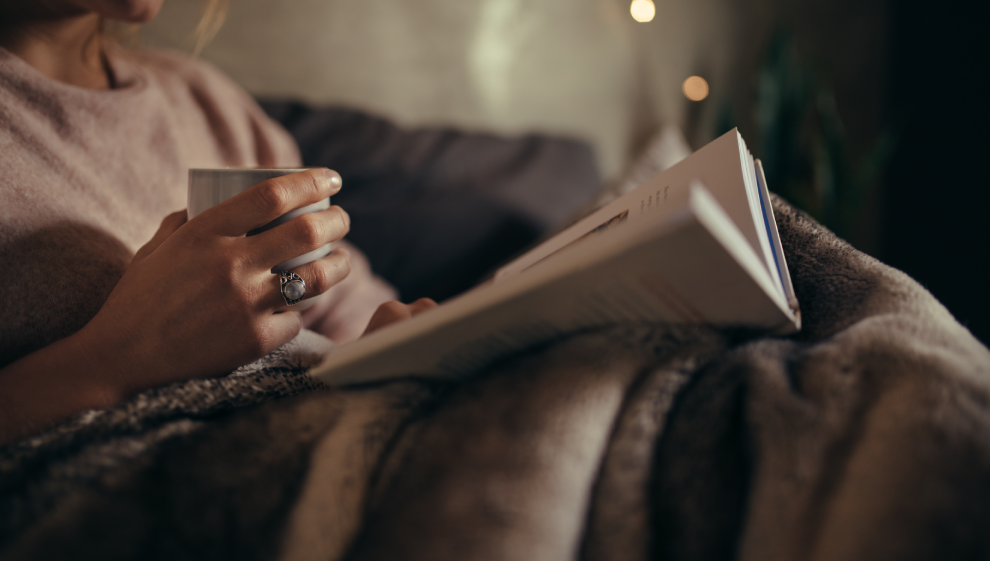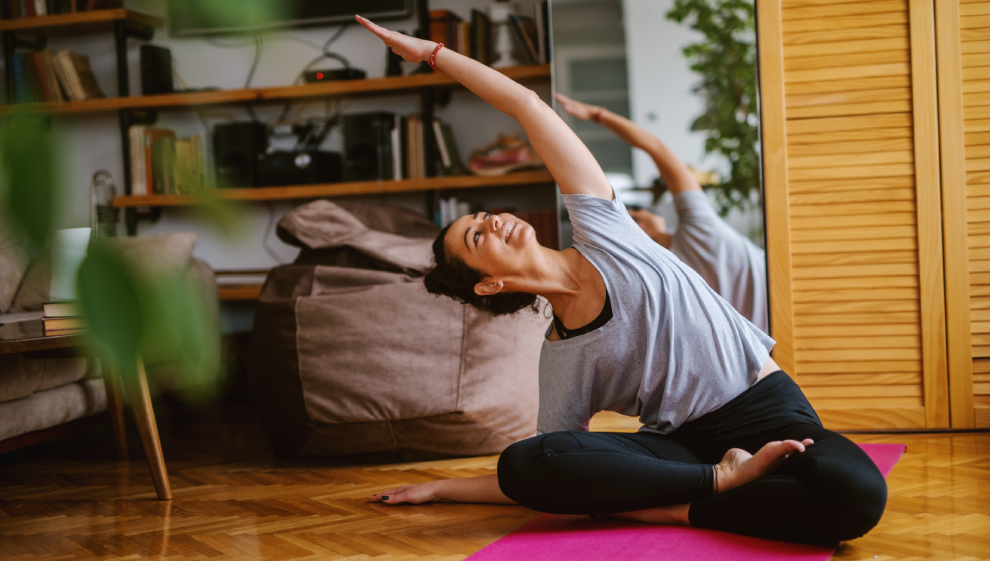Insomnia and how to deal with it | Symptoms, prevention and treatment
- Overview
What is insomnia?

Suffering from insomnia can mean you find it hard to fall asleep, you wake up during the night or you get up too early and can't back to sleep. As a result, you're likely to feel tired, find it hard to concentrate, and struggle to perform normal activities.
Although acute periods of insomnia that last for a few days can be common, more chronic insomnia (more than three days per week for over a month) will have a significant impact on quality of life, mood, relationships work performance and health.
Changes to daily habits and sleep hygiene may help, but if insomnia is having a significant impact on your life you should talk to your GP about it.
How do you know if you have insomnia?
Having trouble sleeping at night can be common and it's thought that up to a third of the population suffer from bouts of insomnia throughout our lives.
Although periods of insomnia may be short and impact performance the next day, for others this can last for extended periods and have a significant impact on quality of life.
Common symptoms of insomnia can include:
- trouble falling asleep
- an inability to stay asleep during the night
- lying in bed awake for long periods
- waking up early in the morning and being unable to get back to sleep
- feeling fatigued when getting up in the morning
- daytime tiredness and sleepiness
- difficulty focusing, remembering or completing tasks
- abnormally low mood or irritability
- worries about going to bed or the ability to sleep at night.
What are the causes of insomnia?
Biological factors
Certain factors and health conditions can impact sleep and cause insomnia. These may include:
- age, causing quality and length of sleep to deteriorate
- dementia
- acid reflux disorders
- chronic pain, including headaches, muscle pain and arthritis
- conditions that can impact breathing, such as asthma, COPD and sleep apnoea
- enlarged prostate or conditions that increase the frequency of urination
- hormonal disorders such as an overactive thyroid
- menopause
- heart conditions such as angina or heart failure
- depression and anxiety.
Some medications can also impact the quality of sleep, such as:
- certain antidepressants
- cold medicine that contains caffeine
- epilepsy medicines
- steroid medicines
- stimulant medicines to treat conditions such as ADHD
- certain medicines to treat asthma and other respiratory disorders.
If you feel like medication is a cause of insomnia then you should talk to your GP.
Psychological factors
There is a strong link between our mental health and how we sleep. Mental health issues can cause problems like insomnia, which in turn have a negative impact on our mental health.

Some of the symptoms we may experience are poor concentration, irritability, feeling emotional and struggling to make decisions. Common mental health problems such as depression and anxiety can impact our sleep in different ways.
Depression is often experienced as lowered energy in the body, which can lead to feeling depleted of energy and wanting to sleep more. This can impact our sleep patterns if we start sleeping during the day. It can also mean that we feel more exhausted rather than refreshed after too much sleep.
Anxiety is often experienced as high energy in the body, which can cause increases in heart rate, sweating and breathing faster. These heightened physiological symptoms are not the optimum conditions for a good night’s sleep and sleep becomes difficult when the body isn't relaxed.
Lifestyle factors
Lifestyle and behavioural factors are often key contributors to sleep disorders such as insomnia.
Sleep is regulated by a biological internal clock, controlled by our circadian rhythm and sleep-wake cycle. If you travel abroad frequently, sleeping in at the weekend or not having a set bedtime/wake-up routine, your sleep-wake cycle will be reset regularly and can suffer as a result.
Try to keep your routine as consistent as possible. Although short naps can be great for alertness, if these are too close to bedtime or too long, these can upset this routine and be detrimental to sleeping at night.
If you suffer from insomnia, it's recommended that you avoid taking naps altogether, but if you need to nap, try to keep to less than 30 minutes and at least eight hours before bedtime.
Alcohol and stimulant intake, such as caffeine and nicotine, will also impact your sleep. It's best to avoid drinking caffeine past midday as it can block sleep receptors in the brain. If you suffer from sleep disorders such as insomnia, then you should avoid these in the evening or altogether.
Environmental factors
The most common environmental factors that impact sleep tend to refer to the environment in the bedroom.
First, try and keep your bedroom as a space mainly for sleeping. If you're working, eating or socialising in the bedroom, you may associate that space with being awake.

Light, noise and temperature should also be controlled to optimise sleep. Too much exposure to light in the evening will impact sleep, so have soft lighting in the bedroom in the evening, avoid TVs, phones and tablets in the bedroom, and invest in blackout curtains or an eye mask if you live in a bright area.
A cool room helps to reduce the body temperature before sleep, which helps initiate the sleep process. Make sure your room is kept cool – somewhere between 16–19˚C is optimal.
Excessive noise is also a common cause of sleep disorders and is potentially the most important factor contributing to a poor bedroom environment. Alarms going off outside, or the hum from your heating, for example, can be disruptive due to the change in noise consistency (i.e. from soft to loud) and can become irritating.
If excessive noise can't be avoided, ear plugs may can be a good solution. Some people also find that white noise or soothing music can be beneficial.
How to treat insomnia
Cognitive-behavioural therapy
Cognitive behavioural therapy is an effective therapeutic therapy to treat insomnia. The treatment is referred to as CBT-I and can be used instead of sleeping tablets and basic sleep hygiene techniques.
CBT-I considers how your thoughts and beliefs about sleep may be influencing your sleep behaviours. CBT will look at your behaviours and habits around sleep and introduce techniques such as relaxation and sleep restriction.
Medications
There are over-the-counter medication
options that may help with sleep, however these treatments don't cure insomnia
and should only be taken for a short period (1–2 weeks). These products may contain natural
ingredients such as valerian or lavender, or be a type of anti-histamine such as
Nytol.
It's important to speak to a medical professional before taking any over-the-counter products as they may have side effects and can interact with other medication you may be taking.
Your GP is there to help you find out the cause for your insomnia, so you can get the right treatment for you. Your GP may prescribe sleeping tablets, however this would only be for a short period as these can have side effects and people can become dependent on them.
Referral to a therapist or a sleep clinic may be one of the recommendations, specifically if you have symptoms of another sleep disorder. It's important to include lifestyle management and sleep hygiene techniques alongside any medications to help with insomnia.
Ways to prevent insomnia
Some of the problems we have with sleep can be prevented by using sleep hygiene techniques. The following techniques can be used to try and improve your ability to sleep:
Set a routine
Stick to the same bedtime and activity times every day and try to avoid the temptation to nap. Aim to wind down at least an hour before bed with relaxing activities that won’t stimulate your brain.
Write down your worries
To prevent worries from interrupting your sleep, take some time to write them down before you go to bed. Create a ‘to-do’ list and postpone thinking about bothersome issues.
Make your bedroom a place to relax
Make sure the bedroom is dark, comfy and quiet. Good air quality and room temperatures are also important – the ideal room temperature for sleeping is 16–19˚C.
Diet and exercise matter
Make sure you eat a balanced diet throughout the day and aim to avoid eating large meals for at least two hours before going to bed. Try to get at least an hour of exercise a day, but don’t exercise in the two hours before bed as your body needs time to relax.
Turn off all electronic devices
Social media can be addictive and many of us lie in bed having one last scroll through before we fall asleep.
Phones and laptops emit a blue light that can keep us awake and prevent the release of melatonin, the hormone that kickstarts sleep. Avoid looking at screens entirely for two to three hours before bed.
If you’re still unable to get to sleep

If good sleep hygiene techniques aren't working, try applying the quarter-of-an-hour rule. Get out of bed and do something non-stimulating, such as reading a book, for 20 to 30 minutes before returning to bed.
If you're still unable to get to sleep after 20 to 30 minutes, get up again. It can be frustrating at first, but eventually, you’ll be teaching your brain that the bedroom is a place for sleeping.
Stress and insomnia
Stress can be a major contributor to poor sleep. When we're facing physical and mental stresses, the body goes into a fight-or-flight state, which produces adrenaline. This hormone causes high levels of mental alertness and can cause tension in the muscles, as well as elevated heart and breathing rate.
During times of stress, the body also produces cortisol, which is helpful to aid survival in a threatening situation. This response is not ideal for most daily functions or when trying to sleep at night. When the body is physically and mentally in a heightened state, it's difficult to achieve the required state of calm for the body to be able to relax and sleep.
Exercise and insomnia
Regular exercise and physical activity are associated with better sleep and reduced likelihood of insomnia. Therefore, introducing regular exercise will hopefully have a positive impact on sleep, although this may not be a quick process and can take a while to get used to.
Exercise also has the added benefit of improving health conditions, such as anxiety and depression, which will have a positive impact on sleep.
Moderate aerobic exercise, at an intensity that should induce breathlessness while still being able to maintain a short conversation, seems to be the most effective.
If you can do this earlier in the day, while exposing yourself to natural light, this can also have a positive impact on the circadian rhythm and further benefit sleep. This can be brisk walking, running, cycling or anything that gets you active.

If you struggle to sleep in the evening, then you should make sure you avoid too vigorous exercise at least four hours before bed as this could have detrimental impacts on sleep.
Instead, some light stretching or yoga with breathing exercises may be beneficial in the evening as these can increase relaxation and cause drops in body temperature post exercise that mimic the same drop during sleep, therefore signalling to the brain that it's time to sleep.
Insomnia advice and guidance supplied by Kim Goldin – Senior GP and Health Assessment Doctor, Luke Cousins – Physiology Regional Lead, and Lisa Gunn – Mental Health Prevention Lead.
Last updated Thursday 13 April 2023
First published on Thursday 13 April 2023
